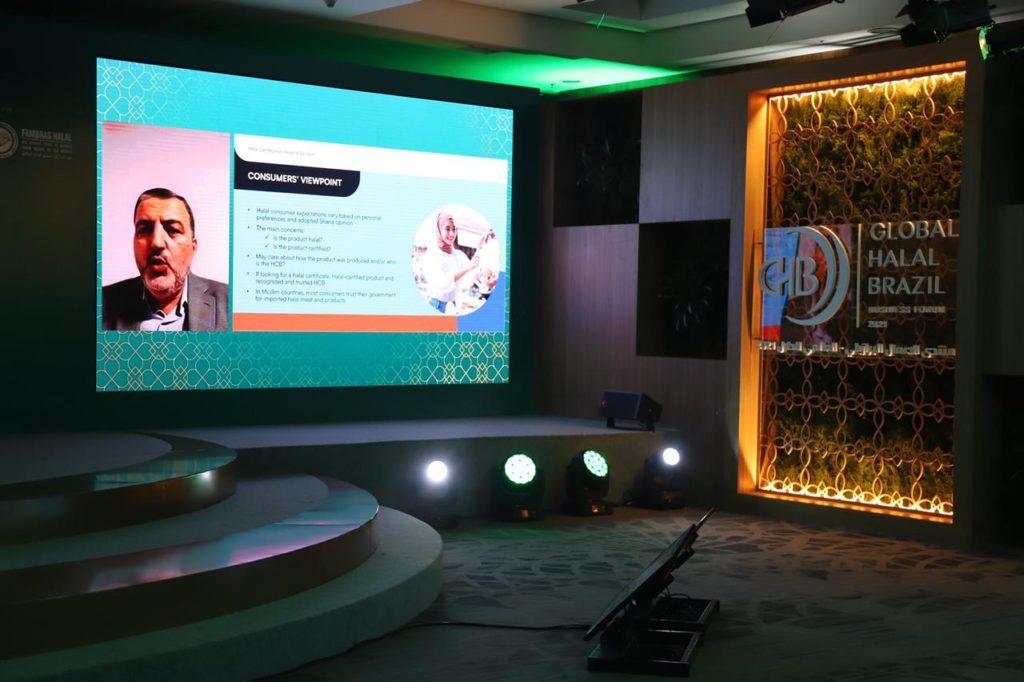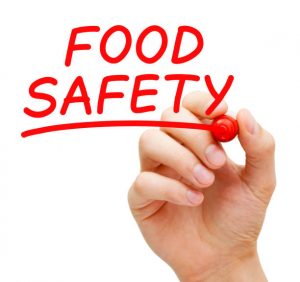THE annual meeting of the Codex Committee on Food Labelling (CCFL)
was held in Ottawa during the first week of May. Hosted by the
government of Canada, the 36th meeting of CCFL was attended by close to
300 delegates representing 72 member countries, one Member
Organization, European Community and 27 international organisations.
As part of the Malaysian delegation to this meeting, I would like to
share with readers some highlights. Developments from this and other
Codex meetings have important implications on local food regulations as
Malaysia tries to harmonise local legislation with international
standards.
Codex fosters consumer protection worldwide
Throughout most parts of the world, an increasing number of
consumers and governments are becoming aware of food quality and safety
issues and are realising the need to be selective about the foods
people eat.
More consumers are demanding that their governments take legislative
action to ensure that only safe food of acceptable quality is sold and
that the risk of foodborne health hazards is minimised.
With this realisation, the Codex Alimentarius Commission (CAC) was
created in 1963 by the Food and Agriculture Organisation (FAO) and the
World Health Organisation (WHO).
The CAC is an intergovernmental organisation whose main objective is
to develop a Joint FAO/WHO Food Standards Programme aimed at protecting
the health of consumers and ensuring fair trade practices in the food
trade.
After almost 50 years, the Programme has established the Codex Alimentarius
(Latin, meaning food law or food code). This is a collection of
standards, codes of practice, guidelines and other recommendations that
serve to provide guidance to governments for their respective national
food control systems. It aims to achieve international harmonisation in
food quality and safety requirements.
More than 200 specific commodity standards for individual foods or
groups of foods have been developed. In addition, a number of
horizontal standards have been published to cover general topics,
including food labelling, nutrition and foods for special dietary uses,
food additives, contaminants and methods of analysis and sampling.
Setting Codex standards on food labelling
Food labelling is the primary means of communication between the
producer and seller of food on the one hand, and the purchaser and
consumer on the other.
Several Codex Alimentarius standards on food labelling have been
developed; the main ones being for the labelling of pre-packaged foods,
nutrition labelling, nutrition and health claims and guidelines for the
use of the term ?halal?.
Codex standards on food labelling have been prepared through the
Codex Committee on Food Labelling (CCFL). Like other Codex standards,
these standards have been prepared through a well-defined and
transparent set of procedures.
Drafts are first prepared and circulated to governments for comment.
These are then discussed in meetings of the CCFL, held annually and
attended by member countries as well as non-governmental organisations.
In this year?s CCFL meeting, there was progress in some of the agenda items, whilst a couple of new items were also introduced.
Definition of advertising in relation to nutrition and health claims
There has also been considerable amount of agreement on the proposed
draft definition over the years. In this year?s meeting, Member
Countries did not wish to deliberate further on the wordings of the
definition but commented on placement of this definition in Codex
documents.
There was some disagreement on this, but after some deliberation,
the Committee agreed that the definition would be included as a
footnote to the word ?advertising? in the Guidelines for Use of
Nutrition and Health Claims.
The Committee concluded discussions on this agenda item and agreed
to advance the draft definition for adoption by the CAC meeting in July.
Implementation of the Global Strategy on Diet, Physical Activity and Health
Recognising the heavy and growing burden of non-communicable
diseases in almost all countries, the World Health Organisation (WHO)
has developed a Global Strategy on Diet, Physical Activity and Health.
A draft Action Plan on how Codex can assist in the implementation of
the Global Strategy was prepared. Seven specific proposed actions were
discussed at length during the CCFL meeting in 2007.
Five topics had considerable support from member countries and were
further deliberated in this year?s session. A separate working group
meeting was held just before the main session on this agenda item.
After deliberations in the main session, member countries agreed to
work further on the following three areas:
1. Revision of the Guidelines on Nutrition Labelling concerning the
list of nutrients that are always declared on a voluntary or mandatory
basis and discussion of issues related to mandatory nutrition labelling;
2. Development of criteria/principles for legibility and readability of nutrition labels;
3. Labelling of foods identified as ingredients in the Global Strategy on Diet, Physical Activity and Health.
A physical working group shall be held just before the CCFL session in May 2009 to discuss these topics.
Labelling of genetically modified foods (GMFs)
The most hotly debated topic in the CCFL sessions is probably the
draft recommendations for the labelling of foods obtained through
certain techniques of genetic modification/genetic engineering (GM/GE).
This topic has been discussed by CCFL for more than 15 years and
there has not been much progress. Indeed, the topic has been in danger
of being abandoned by the Committee.
In the May 2008 session, the focus was on the report of a special working group held in Ghana in January this year.
The United States felt that the Committee should discontinue work on
the development of a Codex text, as this item had been considered for
many sessions and there was no prospect of reaching consensus. This
position was supported by several countries.
On the other hand, the European Community and many other countries
(including Malaysia) supported further work on GM/GE food labelling, on
the basis that substantial progress was achieved in the working group
meeting in Ghana.
These countries are in favour of further considering recommendations
of the Ghana report, which had identified provisions that could be used
to address the labelling of GM/GE foods.
Recognising that there was large support for proceeding with this
work, the Committee decided to further deliberate on this in the next
session of CCFL in 2009, based on the report of the working group in
Ghana.
Other agenda items
The 2008 session of CCFL continued to deliberate on Guidelines for
the Production, Processing, Labelling and Marketing of Organically
Produced Foods. The discussions were on considering several additives
to be used in organic farming.
The use of ethylene for ripening of kiwifruit and bananas and
possibly other tropical fruits was also discussed. Committee members
also discussed the deletion of preparations of rotenone used as an
insecticide in organic farming.
Several other issues that are perhaps of interest to the region are
the discussions on labelling provisions for Draft Standard for
Gochujang (fermented grain with red chilli powder) and the Draft
Standard for Ginseng Product. CCFL endorsed the proposed provisions
after some discussions and minor amendments.
Malaysia contributes actively to Codex activities
Malaysia has been participating in Codex activities since the 1960s.
Since 1996, the Food Safety and Quality Division of MOH has been the
Codex Secretariat for Malaysia.
Over the years, Malaysia has contributed actively to various Codex
activities. We have successfully hosted several Codex meetings and
working groups. Malaysia will commence to host the Codex Committee on
Fats and Oils from 2009 onwards.
Malaysia is also the Vice-Chairperson of the CAC for the third term
(2005-2008). Malaysia is contesting for the position of the Chair of
the CAC, the election of which will take place in the upcoming session
of the Commission in July.
It has been realised, over the years that it is important for the
country to participate effectively in these meetings in order to ensure
that the interest of the nation is taken care of. Before each Codex
Committee meeting, a series of discussions are held in the country
among relevant government departments, professional bodies, the food
industry and consumer organisations to help develop national positions.
As in previous years, Malaysia has presented her view points on
various agenda items in this session of CCFL. Our positions in the
various issues I have highlighted in this write-up have helped shape
decisions made in the meeting.
Malaysia will continue to participate in the Codex standard setting
process to ensure such standards gain greater general acceptance
globally.
* A full report of the 36th Session of CCFL can be obtained from www.codexalimentarius.net/web/index_en.jsp
in the next few weeks. More information on Codex Alimentarius and the
standards published are also obtainable from this website.



